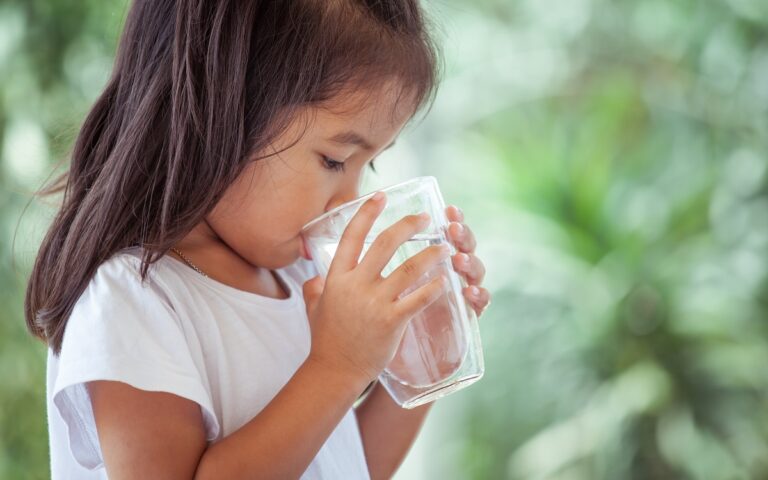Excessive thirst in children
It’s normal for babies and children, especially toddlers, to drink a lot and pass lots of urine (wee). This is called habitual drinking. But excessive thirst and increased urination in babies, children and teenagers can be a sign of diabetes mellitus or diabetes insipidus, which can be caused by a brain tumour.

A brain tumour can cause excessive thirst in children by disturbing the hormones created by the pituitary gland in the brain. This means that the body struggles to regulate its fluids. As a result, your child might need to wee a lot and, because of this, might feel very thirsty.
On this page, we’ll cover:
- Can a brain tumour cause excessive thirst?
- What are diabetes mellitus and diabetes insipidus?
- What are the signs of excessive thirst?
- What should I do if my child is thirsty all the time?
Other symptoms
Use our Better Safe Than Tumour symptom checker to check for other brain tumour symptoms.
Talking to your doctor
Learn more about how to approach your GP.
Get your free Information Pack
Our Brain Tumour Information Pack can help you better understand your diagnosis and feel confident talking to your medical team.
Can a brain tumour cause excessive thirst?
Excessive thirst can be one of the brain tumour symptoms in children.
A brain tumour can sometimes disturb the hormones released by the pituitary gland in the brain. This disturbance could mean that the body can’t concentrate the urine enough and so it passes too much water, leading to excessive thirst.
This symptom is often called diabetes insipidus, which is different from the more commonly known diabetes mellitus.
What are diabetes mellitus and diabetes insipidus?
Diabetes mellitus, often just called diabetes, is the more commonly known type of diabetes. This is when the body can’t create enough insulin on its own, or the insulin it does make isn’t effective enough. Diabetes mellitus has two main types, known as type 1 diabetes and type 2 diabetes.
Diabetes mellitus is not associated with having a brain tumour and can be checked for by a doctor with a simple finger prick test.
If this test is normal, it may indicate that the excessive thirst is a symptom of diabetes insipidus.
Diabetes insipidus associated with brain tumours is usually caused by a disturbance in the hormones released by the pituitary gland, a part of the brain. Because of this, the body struggles to regulate the amount of fluid it contains. This leads to excessive thirst and the need to urinate a lot.
But it’s important to note that diabetes insipidus is rare.

What are the signs of excessive thirst?
Babies and young children will be unable to tell you that they are excessively thirsty. In this case, signs and symptoms to watch out for include:
- unexplained weight loss
- large volumes of urine (weeing a lot)
- leaking from nappies.
Children and teenagers with diabetes insipidus will have:
- excessive thirst – feeling thirsty all the time and feeling ‘dry’ no matter how much they drink (including waking up regularly at night to drink)
- increased urination – needing to go to the toilet a lot and passing pale, watery urine.
If excessive thirst is caused by a brain tumour, other symptoms will often be present, in particular:
- abnormal growth
- delayed or arrested puberty.
You should look out for these symptoms carefully.
What should I do if my child is thirsty all the time?
If your baby, child or teenager has increased thirst and urination, they should be seen urgently by a doctor to check whether this symptom is being caused by diabetes and, if so, what is causing the diabetes.
Should symptoms appear suddenly or are severe, take your child to A&E or phone 999.
If you’re a teenager and you’re worried about increased thirst and urination (weeing), it’s best to talk to your GP as soon as possible.
I think my child has a brain tumour, what should I do?
Brain tumours are rare. But, if you’re worried and a symptom such as excessive thirst persists or if your child has more than one symptom of a brain tumour then:
- Talk to your doctor
GP appointments are usually quite short, so make sure you find out how to best prepare for your child’s appointment. - Get an eye test
If your child’s symptoms are limited to changes in vision and/or headaches, get their eyes tested by an optician before seeing your GP. - Go to A&E
If the symptoms are sudden or severe, you should go to your emergency department or call 999.